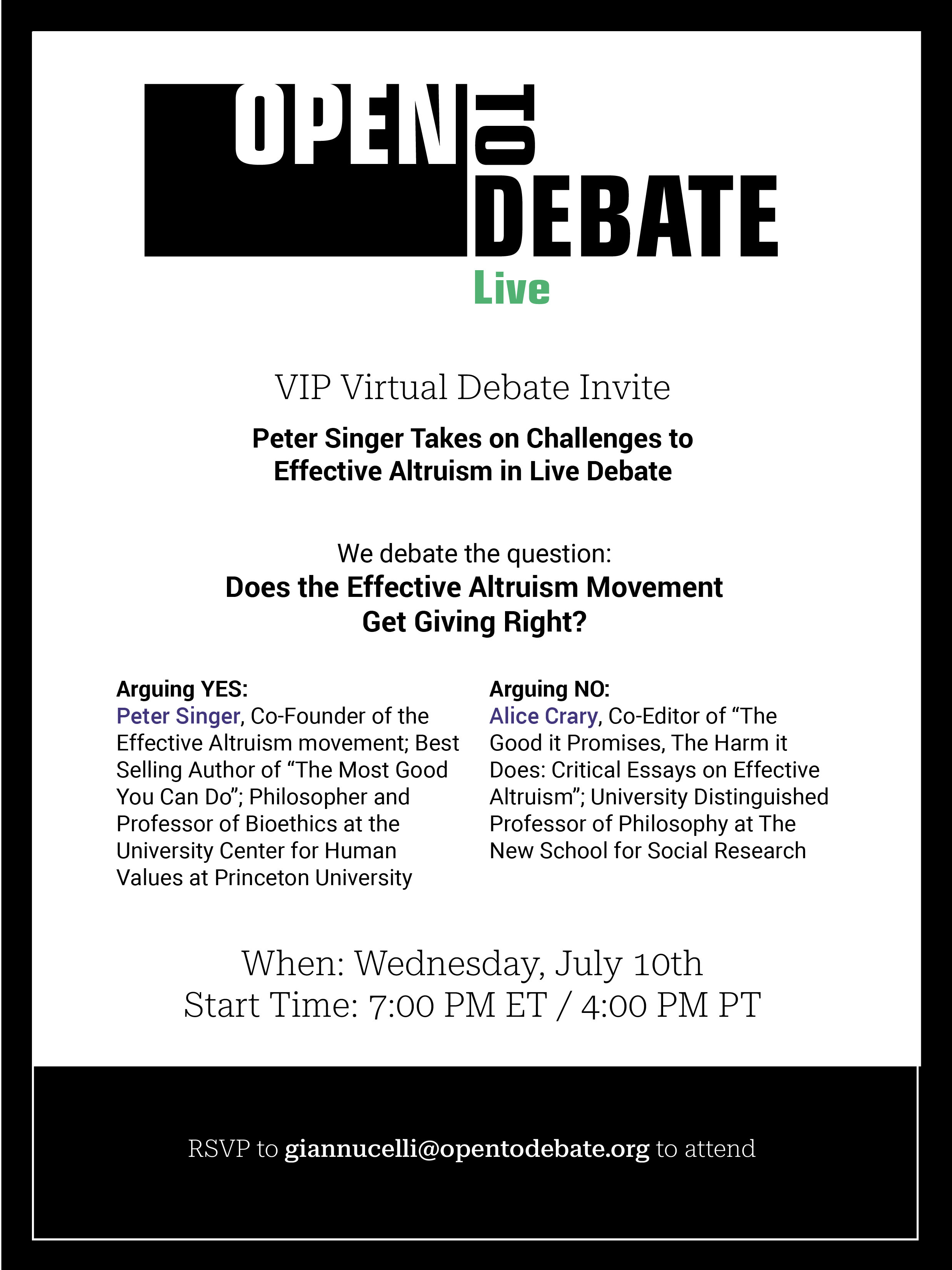Open to Debate (a US radio program "heard by millions and distributed on more than 300 NPR stations across the country") is hosting a debate between Peter Singer and Alice Crary on the question: Does the Effective Altruism Movement Get Giving Right?
The debate will be on Wednesday July 10th, at 7pm ET, held virtually, and lasting around 65 mins.
They've asked me to be one of the "3-4 experts" who ask a question of the debaters towards the end of the debate, and to share the below invitation to RSVP to watch the debate live. (Update: the recording is now available here.)


My impressions: I was very struck by how intellectually incurious and closed-minded Alice Crary was about EA (thought this wasn't surprising given her written work on the topic). She would respond to Peter's points by saying things like, "That all sounds very reasonable, so you just must not really be an EA, as I use the term." I had the strong impression she'd never actually spoken to an EA before.
Her overarching framing took the form of a dilemma: either EA is incapable of considering any evidence beyond RCTs (this seemed to be her core definition of EA), or else there is nothing distinctive about EA. Her underlying reasoning, as emerged at a few points, was that EA doesn't tend to fund the (self-evidently good) social justice advocacy of her political allies. The only possible explanation is that EA is blinded by an RCT-obsessed methodology. (Extrapolating a bit from her written work: Demands for evidence constitute moral corruption because proper moral sensitivity lets you just see that her friends' work ought to be funded.) EA is grievously harmful (again, by definition), because it shifts attention and resources (incl. the moral passions of the smartest college students) away from social justice activists. As such, it ought to be "abolished".
In my question, I tried to press her on whether she saw any "moral risks" to her opposition to EA. (In particular, since less effectiveness-focus would predictably lead to fewer donations to anti-malarial charities, is she at all concerned that her advocacy could result in more children dying of malaria.) She offered a politician-style non-response, that in no way acknowledged that trade-offs are real, or that there could be any possible downsides to abolishing EA. I was not impressed.
Fortunately, Peter did a great job of pushing back against all this, clarifying that:
If you missed this (I did), it looks like the recording will be released on August 9.
Checked to see if it had been released, but it looks like the release date has been pushed back to August 23!
Previous forum discussion of Alice's book: Book Post: The Good It Promises, the Harm It Does: Critical Essays on Effective Altruism and Review of The Good It Promises, the Harm It Does
fyi, the recording is now available, and (upon reviewing it) I've expanded upon my other comments in a new post at Good Thoughts. (I'd be curious to hear from anyone who has a strikingly different impression of the debate than I had.)
Keen to listen to/watch this if it's released. Thanks for posting it